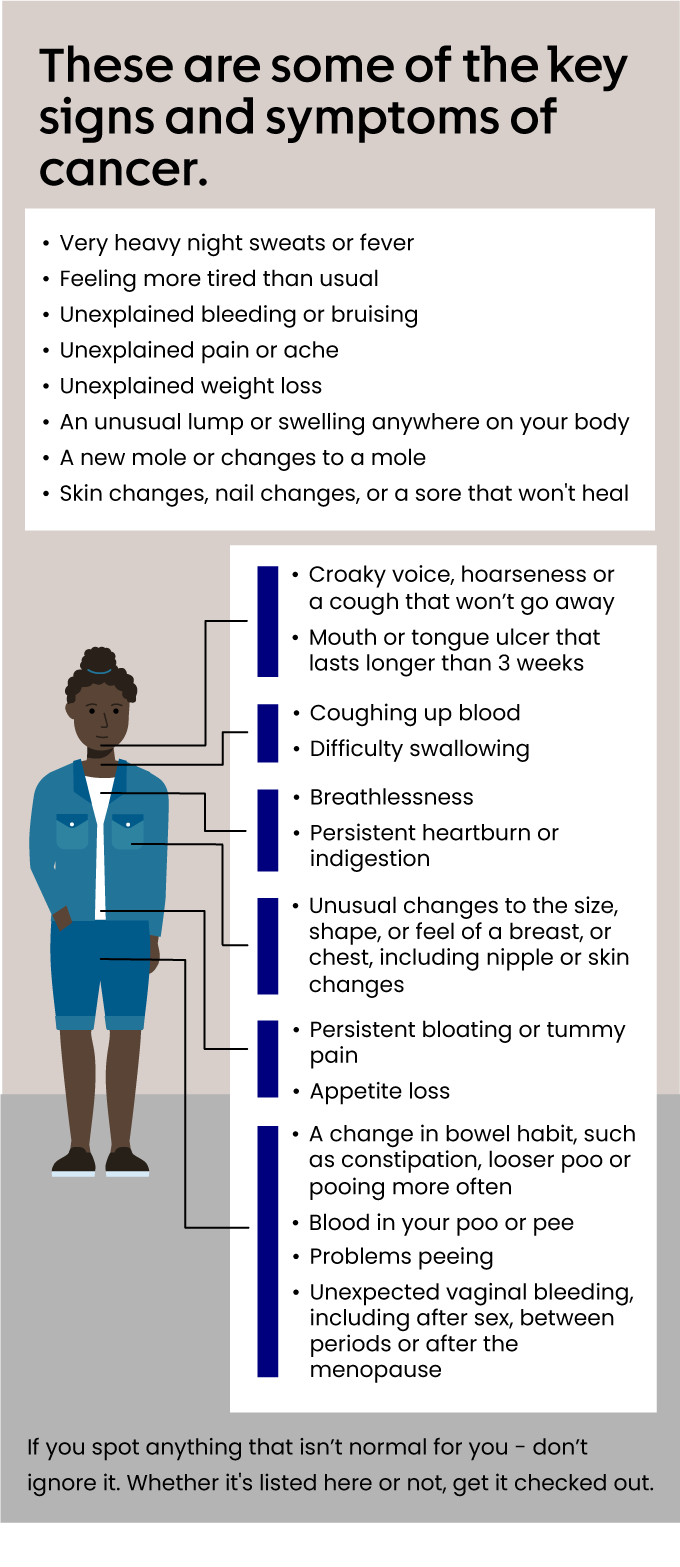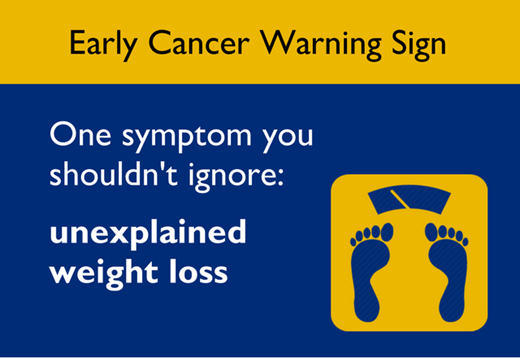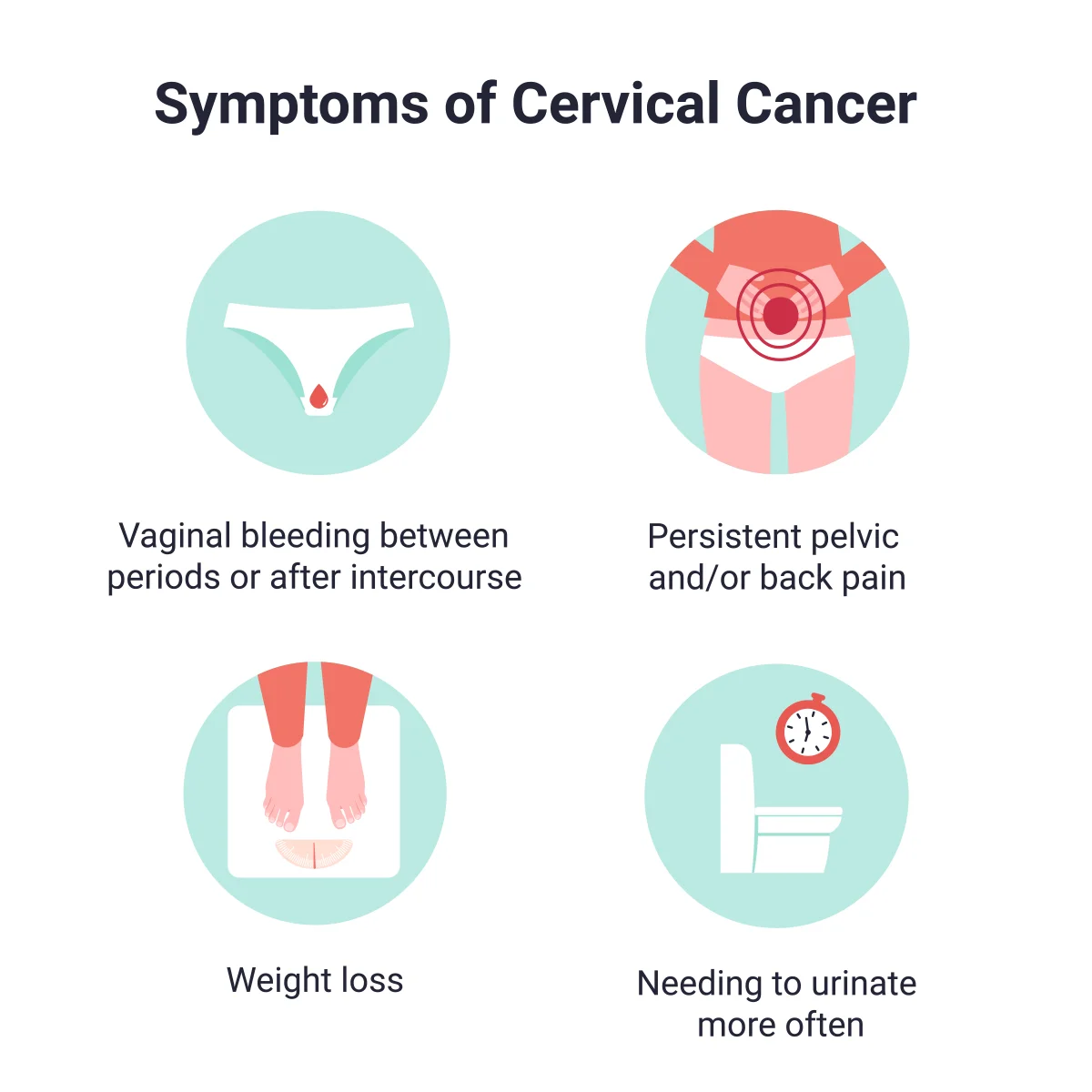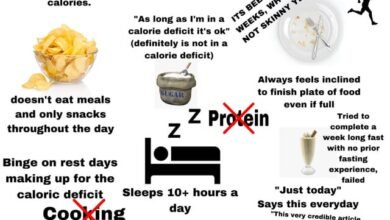
How Do You Know If Weight Loss is from Cancer
Unintentional weight loss can be alarming. It’s natural to wonder about its cause.
One pressing concern is whether such weight loss might be linked to cancer. Sudden, unexplained weight loss can sometimes be a symptom of cancer, though it is not always the case. Many other factors, such as stress or other illnesses, can also lead to weight loss.
How Do You Know If Weight Loss is from Cancer….
Knowing the difference is important for your peace of mind and health. In this blog post, we will explore various signs that may help you understand if weight loss could be cancer-related. Understanding these signs can guide you in seeking timely medical advice, ensuring you address any health concerns promptly and effectively.

Credit: www.hopkinsmedicine.org
Signs Of Cancer-related Weight Loss
Unexpected weight loss might signal cancer, especially without changes in diet or exercise. Fatigue, persistent pain, and loss of appetite often accompany this weight change. Consult a healthcare professional if you notice these signs for timely evaluation.
Understanding the signs of cancer-related weight loss is crucial. It can help you take timely action and seek medical advice. If you’re worried about unexplained weight changes, it’s important to consider possible underlying causes, including cancer.
###
Unexpected Weight Drop
One of the most alarming signs is losing weight without trying. If you notice a significant drop—say, over 10 pounds in a few months—it might be worth consulting a doctor. A friend of mine lost weight rapidly, thinking it was due to stress, but it turned out to be a symptom of lymphoma.
Sudden weight loss can be an early warning sign. It often occurs because cancer cells consume a lot of your body’s energy. If your clothes are getting looser, and you haven’t changed your diet or exercise routine, it’s time to pay attention.
###
Persistent Fatigue
Feeling tired all the time is another red flag. This isn’t your typical end-of-the-day tiredness. Imagine waking up exhausted or needing frequent naps just to get through the day.
Cancer-related fatigue doesn’t go away with rest. It might feel like you’re carrying a weight you can’t shake off. If you’re constantly battling fatigue, consider discussing it with a healthcare professional.
Have you ever wondered why simple tasks feel daunting? Persistent fatigue can make everyday activities a struggle. Keeping track of how often you feel fatigued might provide valuable information for your doctor.
By staying alert to these signs, you can take steps toward understanding your health better. Remember, your body often signals when something’s not right. Listening to it can make all the difference.

Credit: www.bowelcanceruk.org.uk
Differentiating Cancer Weight Loss
Weight loss can be a symptom of many conditions, but how do you know if it’s from cancer? Differentiating cancer weight loss from other types can be tricky, but there are certain signs that might help you figure it out. Here are some key points to consider.
Sudden Vs Gradual Loss
One important thing to notice is whether the weight loss is sudden or gradual. Sudden weight loss might be more concerning. If you’ve lost a significant amount of weight without trying, it could be a red flag.
Gradual weight loss, especially with changes in diet or exercise, is usually less worrisome. However, if the weight keeps dropping steadily over time without any clear reason, it’s worth checking out.
Have you noticed a rapid drop in weight recently? If so, it might be a good idea to consult a doctor. It’s better to be safe and get a professional opinion.
Associated Symptoms
Weight loss alone doesn’t tell the whole story. Look for other symptoms that might occur with it. Are you feeling unusually tired or weak?
Other symptoms can include pain, changes in bowel habits, or unexplained fevers. These, combined with weight loss, could point to something serious like cancer.
Have you noticed any lumps or changes in your body? These could be signs that shouldn’t be ignored. Always pay attention to how your body feels and functions.
Remember, not all weight loss is alarming, but it’s important to be mindful of your body and any changes. If you’re worried, it’s always best to talk to a healthcare professional. Your health is worth it.
Common Types Of Cancer Causing Weight Loss
Unexplained weight loss might indicate cancer, such as stomach, lung, or pancreatic cancer. Persistent fatigue, appetite loss, and changes in bowel habits often accompany this weight loss. Consulting a doctor can provide clarity and guidance.
Unexplained weight loss can be unsettling, especially when you’re not actively trying to shed those extra pounds. While various factors might contribute to weight loss, certain types of cancer are known to cause significant changes in body weight. If you’re losing weight without changing your diet or exercise habits, it’s essential to explore the underlying reasons. Let’s take a closer look at some common types of cancer that often result in weight loss.
How Do You Know If Weight Loss is from Cancer….
Gastrointestinal Cancers
Gastrointestinal cancers, such as stomach, pancreas, and colorectal cancer, are notorious for causing weight loss. When the digestive system is affected, your body may struggle to absorb nutrients, leading to weight loss even if you are eating normally.
I remember a friend who suddenly lost a noticeable amount of weight. He thought it was a result of stress, but it turned out to be stomach cancer, which was affecting his ability to digest and absorb food properly. Early detection was crucial in his case, as it often is with gastrointestinal cancers.
If you notice symptoms like persistent stomach pain, changes in bowel habits, or blood in your stool along with weight loss, you should consider consulting a healthcare professional.
Lung Cancer
Lung cancer is another type that can lead to significant weight loss. This weight loss is often due to the body producing more energy to fight the cancer or the tumor affecting your metabolism.
Someone I know experienced a rapid drop in weight, which they initially attributed to a new job that kept them on their toes. Later, it was discovered to be lung cancer, which was altering their body’s energy balance.
Keep an eye out for other signs like a persistent cough, chest pain, or shortness of breath. These symptoms, along with unexplained weight loss, should prompt you to seek medical advice.
Have you or someone you know experienced unexplained weight loss? It could be your body’s way of telling you something significant. Don’t ignore these signs; your health is too important to take for granted.
Medical Diagnosis And Tests
Understanding the connection between unexpected weight loss and cancer involves navigating a complex medical landscape. If you’re shedding pounds without trying, it might be time to consider a medical diagnosis. This step is essential to rule out or confirm cancer as a potential cause. Medical tests are your best ally here, providing concrete answers and guiding your next steps.
Blood Tests
Blood tests are the first line of defense in identifying potential cancer-related weight loss. These tests can reveal abnormalities in your body, such as elevated levels of certain proteins or enzymes that might indicate cancer. By analyzing your blood, doctors can detect markers that suggest an underlying issue.
Imagine getting a simple blood test that unveils critical information about your health. It’s a straightforward process that can lead to crucial insights. If you’re noticing unexplained weight loss, asking your doctor about specific blood tests could be a proactive step.
Imaging Scans
Imaging scans like CT, MRI, or PET scans offer a visual glimpse inside your body. These scans can help detect tumors or abnormal growths that might be causing weight loss. Your doctor can use these images to pinpoint areas of concern and decide on further steps.
Consider the peace of mind that comes from knowing exactly what’s happening inside your body. Imaging scans are non-invasive and can provide clarity when symptoms are ambiguous. If your weight loss is puzzling, wouldn’t you want to explore every avenue to understand what’s going on?
Medical diagnosis and tests are not just about identifying cancer—they’re about empowerment. They allow you to take control of your health journey with informed decisions. If weight loss has you worried, these tools can be the key to unlocking the truth behind your symptoms. What steps are you willing to take to ensure your health is on track?
Role Of Metabolism In Cancer
Metabolism changes can signal cancer-related weight loss. Cancer cells alter metabolism, leading to rapid weight loss. Unexpected weight loss, coupled with fatigue, might indicate cancer’s impact on metabolism.
Understanding the role of metabolism in cancer can shed light on unexpected weight loss. Cancer can disrupt normal metabolic processes, leading to changes in how your body uses energy. This can result in unintentional weight loss, which might be an early sign of the disease.
Increased Metabolic Rate
One key factor is the increased metabolic rate that often accompanies cancer. Your body may burn calories faster than usual, even when you’re at rest. This heightened energy expenditure can lead to weight loss, despite maintaining your usual eating habits.
Think about the times you’ve felt unusually warm or noticed a faster heartbeat without apparent reason. These could be signs of an elevated metabolism. If you’re experiencing such symptoms alongside weight loss, it might be worth discussing with your doctor.
Cancer Cachexia
Cancer cachexia is another metabolic condition closely tied to cancer. It’s characterized by severe muscle and fat loss, making it different from regular weight loss. This syndrome affects your body’s ability to build muscle, even if you’re eating enough.
You might notice your clothes fitting looser, or feeling weaker than usual. These changes occur because cancer can alter how your body processes nutrients, leading to muscle wasting. If you’re struggling to maintain your weight, despite eating well, this could be a sign of cachexia.
Is your body giving you signals that something might be wrong? Observing these metabolic changes can be crucial. Always prioritize your health and consult a healthcare professional if you notice significant, unexplained weight loss.
Psychological Impact Of Cancer-induced Weight Loss
Cancer-induced weight loss affects mental health. It often leads to emotional distress. People may experience feelings of anxiety and depression. Body image concerns can also arise. Understanding these impacts is crucial for patients and caregivers. Support is essential during this challenging time.
Anxiety And Depression
Rapid weight loss can trigger anxiety. Patients worry about their health. They fear the unknown future. This worry can lead to depression. Sadness and hopelessness often follow. It’s hard to cope with these emotions. Professional help may be needed. Therapy can provide relief and support.
Body Image Concerns
Weight loss changes appearance. This can affect self-esteem. Patients might feel less attractive. They may avoid social situations. This impacts relationships. Acceptance is difficult. Encouragement from loved ones helps. Positive body image is important for mental health.
Treatment Options For Cancer-related Weight Loss
When you’re dealing with cancer-related weight loss, finding the right treatment options can be crucial for maintaining your strength and overall well-being. It’s not just about addressing the weight loss itself; it’s also about supporting your body through the challenges of cancer treatment. You might wonder, what are the practical steps you can take to tackle this issue head-on?
Nutritional Support
Nutritional support is often the cornerstone of managing cancer-related weight loss. Eating well can help you maintain energy levels, support your immune system, and improve your quality of life during treatment. But how do you make sure you’re getting the nutrients you need?
Consider consulting with a registered dietitian who specializes in oncology. They can guide you in selecting foods that are high in calories and protein, but also easy to digest. Look for items like smoothies packed with fruits, protein-rich soups, or nutritious snacks such as nuts and cheese.
You might also explore meal replacement options. These can be convenient and ensure you’re consuming the necessary nutrients when your appetite is low. Have you ever tried adding a protein shake to your daily routine?
Medical Interventions
Sometimes, nutritional support alone isn’t enough. Medical interventions can play a vital role in managing cancer-related weight loss. These interventions can range from medications to more advanced therapies.
Your healthcare team might recommend medications to stimulate appetite or enhance nutrient absorption. These can be invaluable if you’re struggling with nausea or a lack of appetite. Have you discussed these options with your oncologist?
In more severe cases, feeding tubes or intravenous nutrition might be considered to provide essential nutrients directly. While these options may sound daunting, they can be life-saving when other methods aren’t effective. Could this be a viable option for you?
Remember, your journey is unique, and the treatment options should align with your specific needs and circumstances. Have you identified the right combination of nutritional support and medical interventions to help manage your weight loss effectively?
Preventive Measures And Early Detection
Understanding weight loss causes is vital. Early detection can save lives. Cancer-related weight loss often goes unnoticed. Preventive measures and awareness are crucial. These steps help spot issues early. Regular health check-ups and education play a big role.
Regular Health Check-ups
Visit your doctor often. Schedule routine exams. These check-ups detect problems early. Tests and screenings are key. They identify abnormal changes. Early detection leads to better outcomes. Blood tests can reveal hidden issues. Imaging scans offer valuable insights.
Discuss symptoms with your doctor. Sudden weight loss should be shared. Medical professionals know what to look for. They can spot cancer signs early. Regular appointments build a health record. This helps track changes over time.
Awareness And Education
Learn about cancer symptoms. Weight loss can be a sign. Educating yourself is vital. Recognize unusual body changes. Cancer affects everyone differently. Symptoms vary from person to person. Stay informed about common cancer types.
Schools and communities should offer health education. Programs raise awareness. They help people understand cancer risks. Knowledge empowers individuals. It encourages proactive health measures. Awareness campaigns make a difference.

Credit: www.aurorahealthcare.org
Frequently Asked Questions
Can Weight Loss Be The Only Symptom Of Cancer?
Yes, weight loss can be the only symptom of cancer. However, other symptoms usually accompany it. Always consult a healthcare professional for a proper diagnosis and evaluation. Early detection is crucial for effective treatment and management of cancer.
Can You Gain Weight If You Have Cancer?
Yes, you can gain weight with cancer. Factors like treatment side effects, reduced activity, or medication can cause weight gain.
What Type Of Cancer Causes Loss Of Appetite?
Various cancers can cause loss of appetite. Common ones include stomach, pancreatic, liver, and colon cancer. Tumors can affect digestion or release hormones affecting hunger. Early detection and treatment can help manage symptoms. Always consult a healthcare professional for an accurate diagnosis and guidance.
What Is The Biggest Indicator Of Cancer?
Unexplained weight loss is a significant indicator of cancer. Other signs include persistent fatigue, lumps, or changes in skin appearance. Always consult a doctor for a proper diagnosis.
Conclusion
Recognizing weight loss from cancer is crucial. Sudden weight loss can be alarming. Pay attention to other symptoms like fatigue. Consult a doctor if you notice unusual changes. Early detection can make a difference in treatment. Remember, not all weight loss means cancer.
Lifestyle factors also play a role. Stay informed and prioritize your health. Always seek professional advice for any concerns. Your well-being matters the most.







